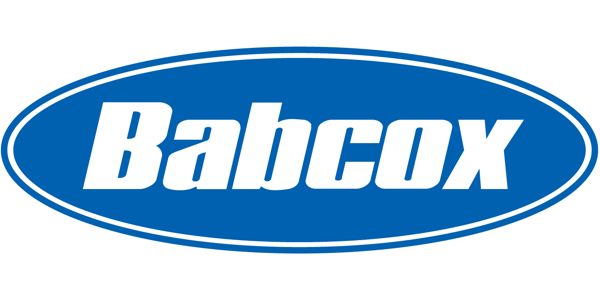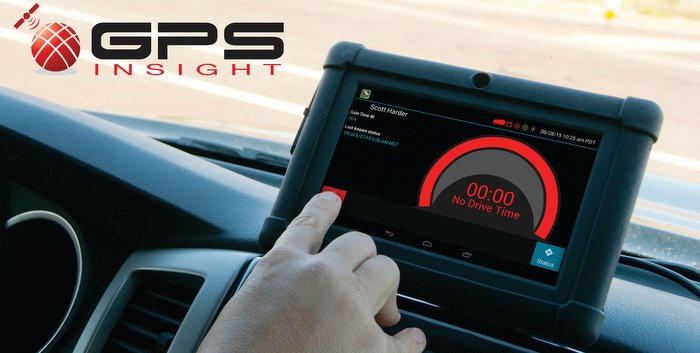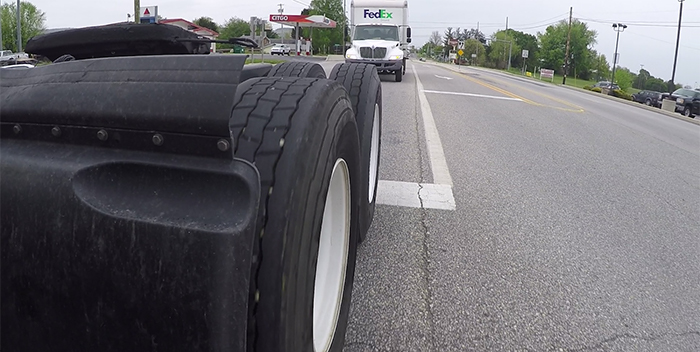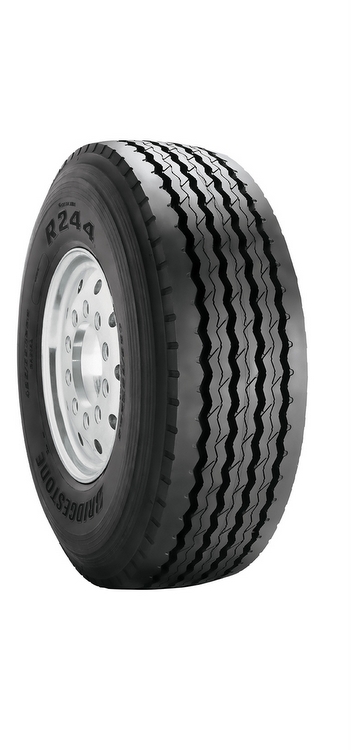Match the refrigeration unit and the box for ultimate performance
Fleets that haul temperature-sensitive cargo know that they need to be able to have absolute control over the temperature of the truck or van trailer in which that cargo is being hauled. The right truck or van body, coupled with the best mobile refrigerated unit is what is needed to protect the load.
Spec’ing reefers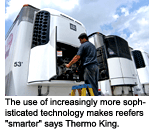
Knowing how to specify the right marriage between the body or van trailer and the refrigeration unit is key to a successful operation. So what is it fleets need to know? Mike Rickert, product manager, trailer, at Thermo King has compiled a checklist for fleets to follow as they begin the process of specifying a van trailer. Fleets need to know and list:
• maximum/maximum operating ambient temperature;
• type of transport (distribution, long haul);
• product type/weight/temperature;
• trailer dimensions;
• type of rear door;
• location/type of trailer side doors;
• wall insulation type/thickness;
• compartment dimensions for multi-temps;
• partition insulation thickness/type for multi-temps;
• floor type (E-track, etc.);
• trailer age;
• color of trailer;
• how to protect against solar radiation;
• operating time (hours/day);
• length of time unit will be able to pre-cool trailer before loading;
• if trailer has curtains (number);
• if it will be loaded at a sealed dock;
• number/duration door openings per day; and
• other special considerations.
Ignacio Aguerrevere, director of marketing and product development, Truck/Trailer/Rail, Americas Carrier Transicold, says, “First of all, work jointly with your trailer and refrigeration vendors. Because the refrigeration system and trailer, or truck, work together as a system, they should be specified in conjunction to avoid over-spec’ing one and under-spec’ing the other.
“Whether you are talking about truck or trailer refrigeration, our customer studies have shown that, reliability remains number one, followed closely by durability,” he says.
The equipment must be dependable since fleets want their investment to last. Fuel efficiency and quiet operation, are important, as is maintenance ease. And simple operation is critical to minimizing the risk of driver error when selecting control parameters, more so nowadays with driver turnover being what it is and a more diverse driver pool.
“With rising fuel costs, there is an interest in using electric standby at the loading dock for trucks and trailers for pre-cooling as well as during loading and unloading,” Aguerrevere says. “Running a system off of an AC electric supply reduces operating costs by 50 percent compared to diesel and is much quieter. Because of the all-electric nature of our Deltek systems, they are equipped with electric standby, and electric standby is an option offered with most other trailer and truck units from Carrier.”
Technology advancements
Mobile refrigeration units continue to evolve. The use of computers makes them “smart” and helps fleet efficiently and effectively control cargo temperatures. Rickert says.
“The addition of the SR2 Controller and ETV (Electronic Throttling Valve) on our units have allowed us to optimize capacity for ambient conditions by maintaining temperatures within a very narrow band and reducing fuel costs,” he says. “We’ve increased temperature pulldown times by up to 40 percent and increased temperature pull up times while maintaining tighter temperature control, resulting in improved product shelf life and lower fuel costs. Further advancements added over the years include Optiset Control with Freshset and advanced temperature management system which can reduce product shrinkage, prevent top freezing and extend shelf life of fresh products, while optimizing fuel economy.”
Aguerrevere says, “The microprocessor has enhanced interior environmental control significantly through software that uses input from sensors inside and outside the box to fine-tune the performance of the refrigeration system. Carrier continues to refine and expand capabilities through upgrades to the Advance control’s firmware. Advance’s IntelliSet option, was expanded to permit 30 user-programmable profiles – double the original count – based on customer feedback. And the ProductShield fuel-optimization capability has been enhanced.”
Many perishable commodities are carried at the same temperature, but benefit from different operating conditions.
“With Carrier’s IntelliSet option, the fleet manager predetermines all variables using the ReeferManager desktop software,” Aguerrevere says. “Settings include temperature, airflow, start/stop or continuous operation, off times, restart times, temperature overrides, defrost intervals and more. While on the road, IntelliSet’s ProductShield capability improves fuel efficiency and performance by making real-time intelligent system management decisions based on sensed interior and ambient conditions. In other words, it determines when to use continuous operation or when to run in start/stop mode, based on settings provided by the fleet manager.”
But refrigeration technology advances aren’t limited to the software. The introduction of the diesel electric hybrid is a major recent milestone. Aguerrevere says. “From a temperature-management perspective, Deltek technology introduced the capabilities of the Advance microprocessor to multi-temperature systems. It also brought all-electric heating, which means you don’t compromise the unit’s performance when delivering perishable cargoes in colder climates or seasons. The traditional approach uses the refrigeration system to create heat, but its heating ability gets diminished in colder ambient conditions – ironically, when you need it most. With electric heating, this issue is gone.”
Leveraging technology
Many reefer fleets are currently able to leverage tracking technology on vehicles/trailers while they are on the road and have the ability to retrieve data when they are in the shop According to Rickert, “Thermo King supports satellite, GPRS, (cell phone), and short range telematics options. The options can be configured to provide unit operating and temperature data with the reefer unit on. Two-way full control is available on satellite systems. This will allow for remotely stopping and starting the refrigeration unit. Future enhancements include an option to maintain the independent logger operation when the refrigeration unit is powered off. This will allow monitoring of the trailer temperatures when the unit is off. The system will be programmable to automatically turn off the logger after a set amount of time. Thermo Kings’ Service Watch, which provides a built in preventive maintenance logger, improves diagnostics, keeps track of system performance and functionality and records all operational parameters in the unit.”
Aguerrevere says that the use of telematics continues to grow, and the ability to remotely communicate with refrigeration equipment – via radio (RF), cellular or satellite – is part of that trend.
“Carrier’s DataTrak remote monitoring and control capability is widely used in the rail transport refrigeration area, where unattended operation is the norm, and it also is being tapped by the expanding number of highway fleets already using global positioning systems (GPS) for vehicle and cargo monitoring,” he says. “The DataTrak capability interfaces with a broadening spectrum of third-party telematics products, making all temperature and operational data and alarm information available via wireless in real time.”
The Advance microprocessor’s internal database provides access to all information collected, such as system operation, alerts, temperatures and door openings. Two-way communications capability allows operators to remotely change settings on the refrigeration system, including setpoint and other operating parameters. In the fleet yard, users also can use either RF or cellular to download IntelliSet settings into units, and users also can retrieve data about system operation following a run, either for Hazard Analysis and Critical Control Points (HACCP) purposes or to monitor system operation for preventative maintenance reasons.
When the units are in the shop, Carrier-unique PC data cards allow transferring information to and from the refrigeration systems – data downloads, upload new configuration, upgrade software, etc. This eliminates the need to tote a laptop to the unit, which is not a good option for vehicles parked on the lot in bad weather and is usually a slower transfer than one gets with PC data cards.
Maintenance made easy
Thermo King’s Rickert says, “There have been several improvements made to our system over the years. One of the best enhancements, is the addition of a feature called ServiceWatch, which provides a built in preventive maintenance logger, improves diagnostics, keeps track of system performance and functionality and records all operational parameters in the unit.
“We’ve also added the following over the last several years: extended service intervals to 3,000 hours engine oil/filters, extended service intervals to 12,000 hours or five years for engine coolant, easy access to components on SB Product line,” he says. “Our products have an onboard data logger that logs many data points to document and assist technicians to reach root cause of problems. The onboard diagnostics include full pre-trip, service test mode and interface board test. In addition, hour meters are programmed to remind fleet managers when maintenance is due. There is an increasingly sophisticated software and microprocessor controls that document issues and have built in solutions to protect the load and equipment. Last, but not least, we offer long life components such as belts, hoses, and filters.”
Aguerrevere says there are four key maintenance trends: streamlining, access, information and service:
• Streamlining – key drivers in maintenance are reduction of items requiring service and longer intervals between servicing.
• Easy access – the company recently redesigned the Supra truck series units to make maintenance easier by allowing basic service inspections without having to open doors or remove panels.
• Informed diagnostics – progress with controls goes well beyond improving temperature regulation. The company’s advance system doesn’t merely flag the problem – it automatically identifies faulty components by name in the digital display, reducing or eliminating time spent troubleshooting.
• Service agreements – fleets should consider the availability of extended warranty and service programs, which are more important than ever given the complexity of refrigeration systems and the availability of qualified technicians.
Future advancements
Given the the level of technical advancement mobile refrigeration units have seen, there is no doubt the industry can expect even greater things in the future.
“Looking toward the future, Thermo King will continue to lead through innovation and deliver the most reliable, efficient and clean-running products in the industry,” Rickert says. “Thermo King believes that current alternative technologies, which use fuel less efficiently than direct-drive engines, do not represent the future direction of the industry and are researching other alternative solutions to deliver long-term, sustainable results. Right now, Thermo King’s cryogenic units deliver high performance with zero emissions, low noise and minimal moving parts – something no other competitive product can currently offer. In addition, the soon-to-be launched Spectrum SB multi-temp trailer unit will feature the SR-2 controller, the latest advancement in controller technology.
“Needless to say, as in the past, Thermo King is committed to researching, developing and manufacturing the products and technologies that will not only be fuel efficient and environmentally responsible, but will also successfully carry the transport industry and its customers into the many decades ahead. The total investment in Ingersoll Rand R&D facilities around the world supports that commitment. With the resources and engineering talent that can be tapped into through other IR R&D facilities, as well as our own, the future couldn’t be brighter.”
Carrier continues to improve reliability and performance in its current product line. According to Aguerrevere, “You can also expect to see the deployment of the benefits of Deltek technology to other refrigeration units, in addition to today’s trailer multi-temperature systems. Another area being studied closely is the use of alternation and natural refrigerants.”
In the future, Aguerrevere adds, “We believe that ease of programming so that all units in a fleet have consistent operating parameters is key to a successful compliance with HACCP criteria. On-board printers allow drivers to generate reports showing precisely what went on inside a vehicle during transit. And, of course, greater use of telematics will provide real-time monitoring of cargo conditions, including environmental management, system performance, vehicle stops, door openings and more for HACCP and security purposes.”
Telematics monitoring
International Truck and Engine not only offers its Diamond Logic Electrical System that assists in integrating the refrigeration unit and the truck, the company also is working on new functionality for the industry. International AWARE Vehicle Intelligence is a telematics system that can monitor the performance of the truck and the reefer body.
Fleet managers can monitor – in real-time – the temperature of the cargo area, whether the unit is turned off or on, the total hours on the unit and the frequency and length of the door openings. The total hours a reefer body is operated can be used to schedule service intervals for fleet managers. While on the road, if the body temperature rises above certain pre-set parameters, the fleet manager can be notified immediately via e-mail or text message to the potential problems.
As an OEM offering a real-time telematics system, International’s trucking solutions package provides innovative advantages for the refrigerated transport industry, the company said.
It’s about insulation
With record high diesel fuel prices impacting the profit margins of trucking companies, it pays to look for every possible savings. For refrigerated motor carriers that means understanding that as insulation in a refrigerated trailer ages, it degrades, adding to fuel costs because the trailer’s cooling unit has to work harder, run longer and consume more fuel to keep the trailer at the desired temperature.
Most refrigerated trailers today are insulated with polyurethane foam because it is lightweight, cost-effective, versatile in the manufacturing process, and allows for a wide variety of applications. Sounds good, but there’s a catch: While polyurethane initially provides excellent insulating performance, as a trailer ages the foam inevitably loses its ability to insulate effectively.
One method of preventing this effect might be to use a less permeable interior liner. FRP, a liner in the North American marketplace, is permeable and does not completely seal the insulation, allowing the “out gassing” effect to occur, according to the company.
To resolve this problem, Great Dane Trailers introduced ThermoGuard in 2005, a product that addresses this challenge by combining the advantages of an FRP liner with the sealing ability of a metal skin. The patented interior liner for refrigerated trailers is constructed like traditional FRP, but with an added composite layer to seal the insulation and significantly reduce insulation degradation, the company said.
Trailers with ThermoGuard have already shown a significant decrease in loss of insulation performance and have demonstrated the ability to maintain internal temperatures for longer periods of time, reducing the cooling unit’s run time, according to the company. In this era of unprecedented fuel prices, Great Dane says it is bringing products to the marketplace to extend the useful life of a trailer, reduce maintenance costs and generate more income for its customers.
Cold plates
Cold plate refrigeration has been around for decades, according to Johnson Refrigerated Truck Bodies (JRTB). The company says that cold plates have proven to be reliable and cost effective.
“Unlike mechanical blower systems, cold plates have few moving parts that are susceptible to breakdowns,” says Greg LaFrance, director of sales and marketing for the company. “As a rule of thumb, cold plate blowers are a great application for fresh to medium temp products, like produce, dairy, fresh meat or seafood. They offer tight temperature control but with the simplicity and low maintenance of cold plates. Straight plates work well for frozen and deep-frozen applications. Mechanical refrigeration gives you very quick temp recovery and flexibility to adjust temp settings one day to the next.”
New technology adds value to these types of refrigeration units. In particular, LaFrance notes, advancement in cold plates will be spurred on by truck electrification. Specially, RouteMax, by Johnson Refrigerated Truck Bodies and International Truck and Engine Corp, will allow for extended route delivery beyond the 12-hour delivery cycle of cold plate technology. The RouteMax system, powered by International’s PowerPack 3, is a self-contained system built into the vehicle that provides continual charge to cold plates while maintaining fuel economy. This new technology allows users to charge cold plates as they drive, throughout the day during transport – so it reduces plug-in time and extends delivery routes. In essence, the newest cold plate technology provides a continual charge to the cold plates while maintaining the fuel economy of traditional cold plates the company said.
“When specifying, one must take into consideration the type of product being distributed,” LaFrance says. “In the case of food, fleets must determine if it is to be delivered fresh, frozen, or chilled to a specific temperature. One of the primary focuses should be food safety and quality. One product liability claim or abuse in the cold food chain can spell disaster for a food processor. For example, JRTB has developed compartmentalized trucks for customers who require frozen and fresh delivery of (specific foods).
“An increasing number of fleet managers are looking for ways to deal with rising fuel costs and minimize maintenance costs. They are looking for a lower overall total cost of ownership,” LaFrance says. “JRTB offers a lower initial cost of the truck body power unit and refrigeration system. As with any transportation refrigeration system, cold plate refrigeration requires high and consistent levels of product handling standards. It also requires education, training, daily supervision and management commitment to assure product quality.”

